POV: Filmmaking Can Help Advocate for Change
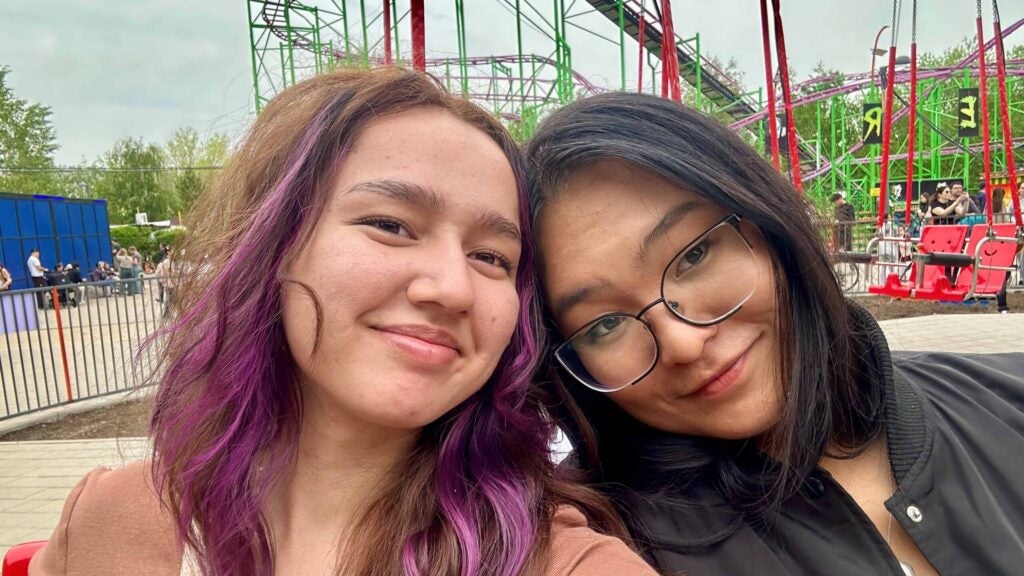
Lyailya Nurpeissova and Manizha Abdulloeva, Class of 2027, spent the summer filming a documentary in Kazakhstan. Here they write about their experience and lessons learned.
Over the summer, we had the opportunity to work on a documentary about the criminalization of domestic violence in Kazakhstan, with a broader focus on women’s rights. This experience challenged and reshaped the way we both view filmmaking. Filmmaking holds the power to create, influence, and advocate, using the lens of the camera as our tool to bring these stories to life. It was more than just a technical learning journey—it was a deep dive into understanding human stories, societal struggles, and our role in amplifying them.
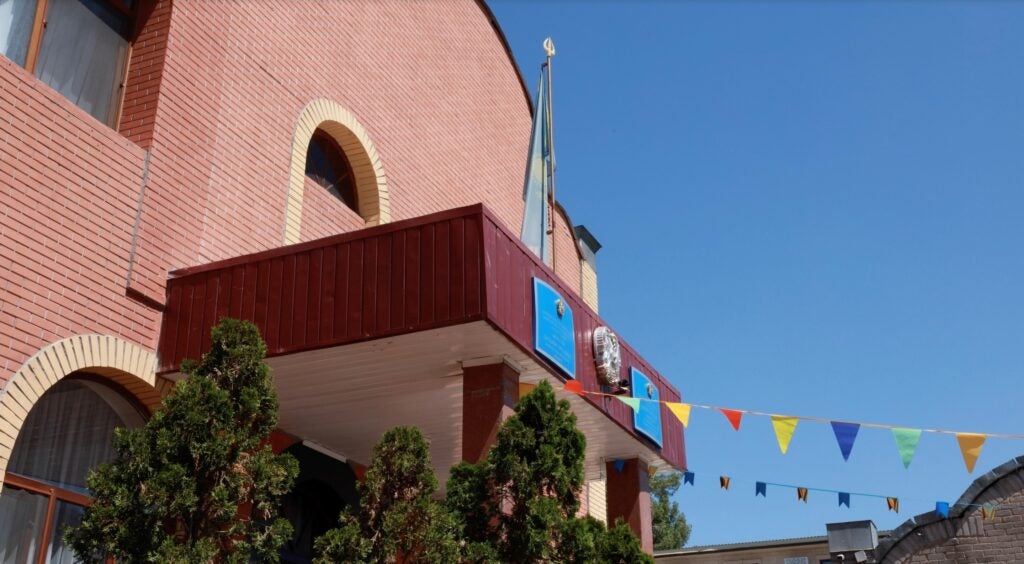
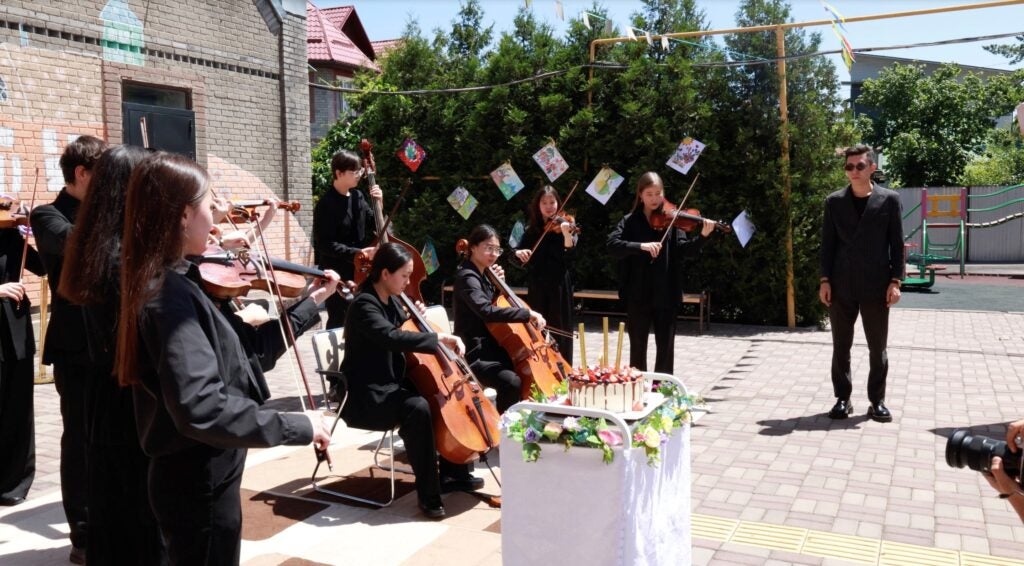
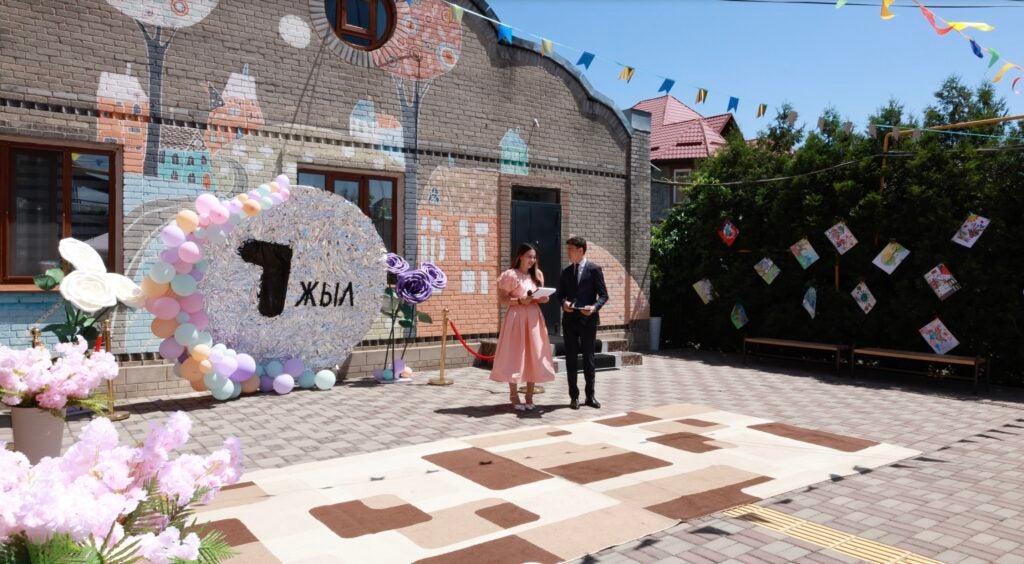
Filming location in Kazakhstan at a government-run women’s crisis center which provides support and refuge for victims of domestic violence. We collaborated with this organization to highlight the vital work they do in helping survivors rebuild their lives in a safe environment. During filming the center celebrated its seventh year of operations.
One of the key lessons we took from this experience was the importance of perseverance in telling stories that matter. While filming, we often encountered challenges in accessing sensitive information, speaking with women who had experienced domestic violence, and navigating legal barriers. But these obstacles only reinforced our determination. The resilience of the women and activists we interviewed taught us that these stories must be told, even when the process is difficult. Advocacy through the media requires patience, empathy, and a willingness to push through discomfort to ensure that voices are heard.
“Filmmaking is not just about capturing stories but understanding the emotions and experiences behind them. This experience has shown me that when we approach storytelling with compassion, we have the power to create a deeper connection and inspire others to take action.”
—Lyailya Nurpeissova (SFS’27)
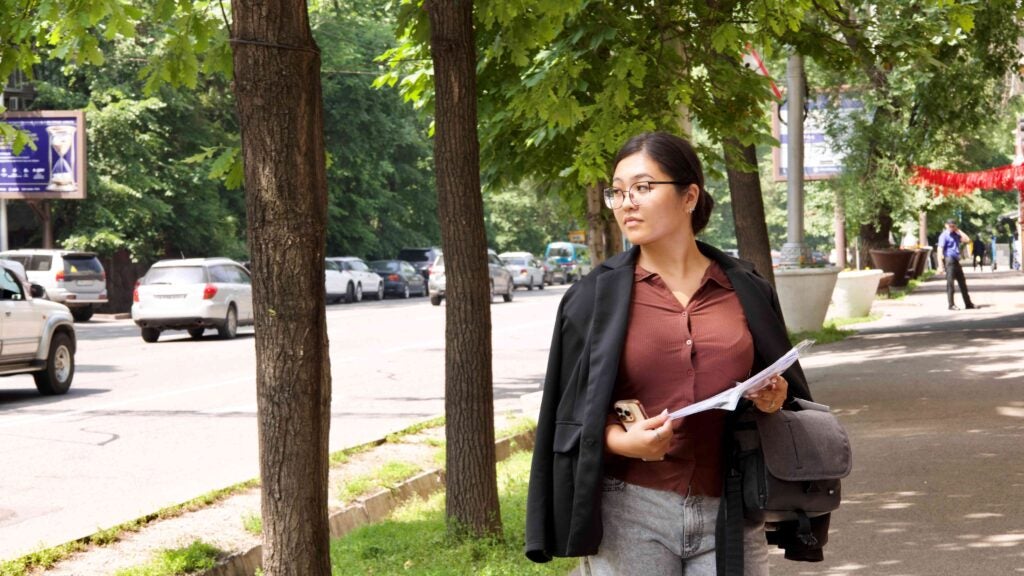
On a personal level, we discovered that we are not just filmmakers—we are advocates. Filmmaking became a way for us to channel our passion for social justice, particularly in areas that are often overlooked. Through this documentary, we learned to see ourselves as a bridge between those who have stories to tell and the wider world that needs to hear them. This shift in perspective will guide us in future projects, as we now recognize the power of media not only to inform, but to inspire action.
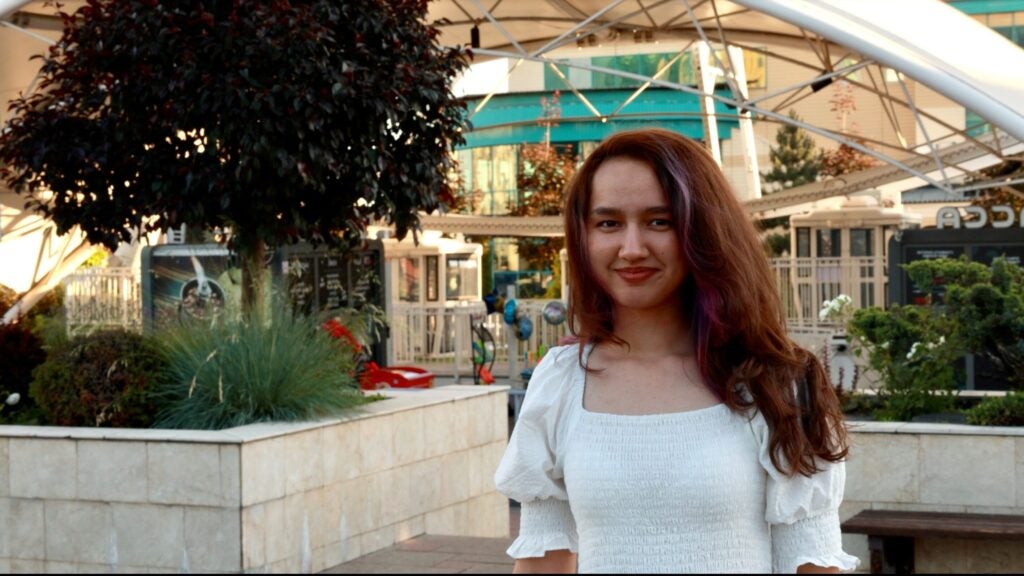
“Working with activists and survivors showed me how collective effort can bring hidden issues to the surface. It’s not just about storytelling—it’s about building movements that inspire action and support human rights.“
—Manizha Abdulloeva (SFS’27)
Moving forward, we are more committed than ever to using media as a tool for social change. This experience has reinforced our belief that storytelling can shape conversations, influence policy, and ultimately drive progress. Through the production of media, we will continue to focus on issues that need visibility. This project has inspired us to launch The Filmmaking Society on our campus, where we aim to cultivate a space for creative collaboration and storytelling with a purpose. In the future, we aim to expand this society and collaborate with the larger community, bringing together filmmakers, advocates, and changemakers to drive impactful conversations and inspire action through media. This project was just the beginning of what we hope will be a lifelong journey of combining media and advocacy to make a meaningful impact.
More News
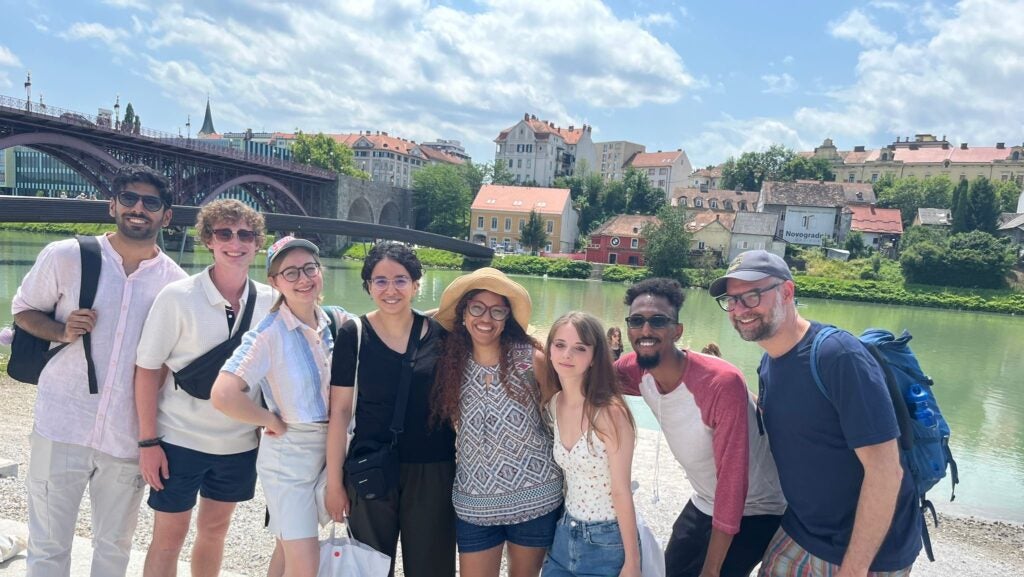
How GU-Q Students Spent their Summer
From South Africa, to Switzerland, to Kazakhstan, GU-Q students spent eventful summers engaged in hands-on learning to prepare for active citizenship and productive careers in international affairs.